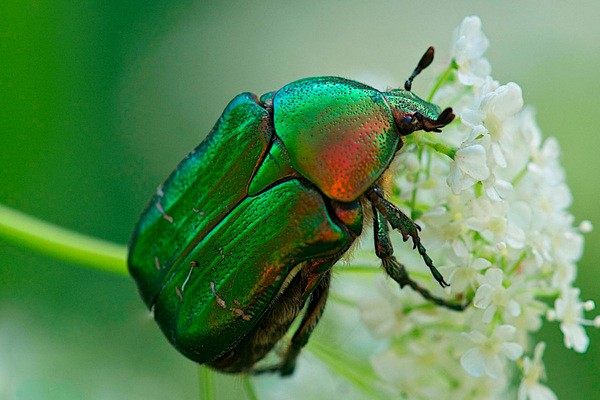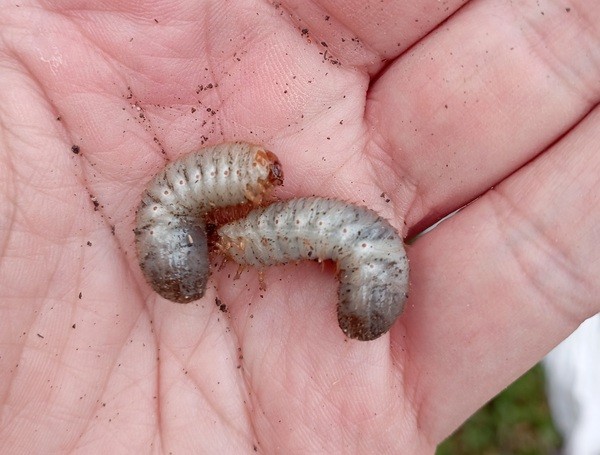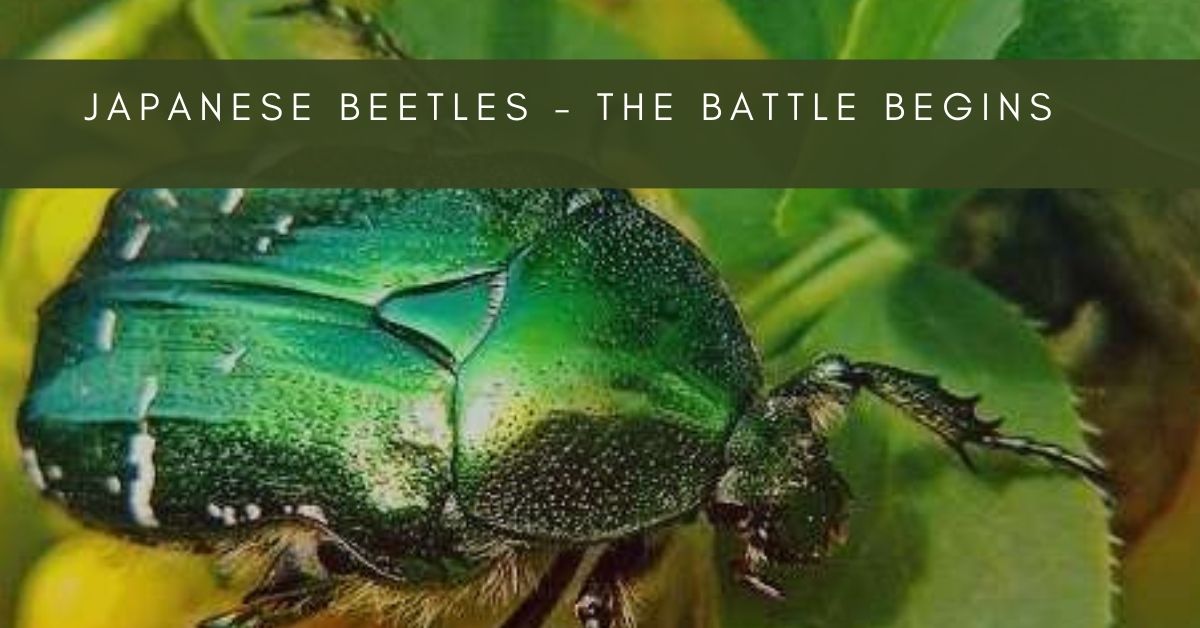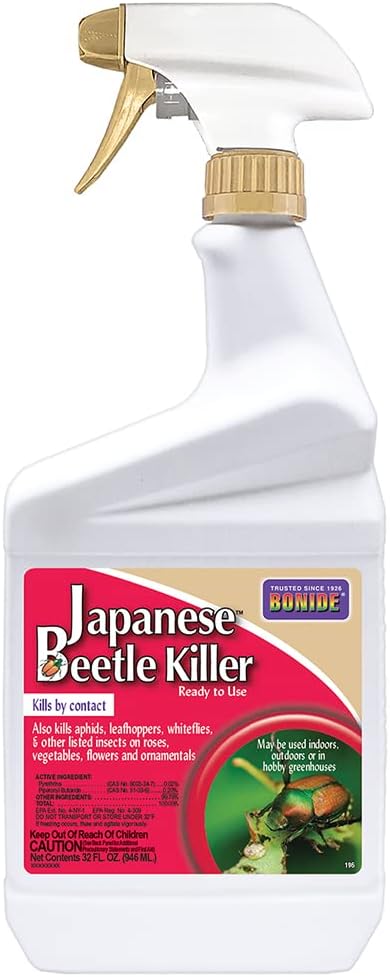Roses velvety petals and intoxicating fragrances are a true gardener’s pride. But just as you’re about to snip that perfect bloom for the centerpiece, you spot them: clumsy, metallic-green beetles munching on your masterpiece. Fear not, fellow rose enthusiast! This isn’t the end of your floral fairytale. We can banish these bumbling beetles and keep your roses flourishing.
Understanding the Beetle Brigade
The most common culprit is the Japanese beetle, a notorious rose ravager. These unwelcome guests arrive in late spring/early summer, leaving a trail of chewed leaves and skeletonized blooms in their wake. But how did they find your rose haven?

Why Are Japanese Beetles Attracted to Your Roses?
Japanese beetles are drawn to the sweet scent of roses, making them particularly attracted to brightly colored varieties. Additionally, moist soil around the base of your rose bushes creates a breeding ground for their larvae, who feast on the roots before emerging as adult beetles.
Beetle Boot Camp: The Multi-Pronged Approach
There’s no single magic bullet for ousting these beetles. The best defense is a multi-pronged approach that combines natural and, if necessary, targeted interventions. Let’s explore our beetle boot camp options:
- The Early Bird Gets the Grub
Disrupt the beetle life cycle by applying Milky Spore, a natural bacteria that targets and kills grubs in the soil. Apply it in late summer or early fall for best results.
- The Breakfast of Champions (for Beetles, Not Your Roses)
Japanese beetles can’t resist a buffet of fragrant foliage. To deter them, plant companion herbs like garlic, chives, or catnip around your rose bushes. The strong scents will confuse and repel these unwanted guests.
- Maintain a Clean Garden
The larvae of these beetles live in rotten wood or piles of humus. Therefore, if you periodically remove such wood and clean your area of fallen leaves and fruits, the likelihood of adult beetles appearing will be significantly reduced.
- The Great Rose Rescue
Morning is beetle-hunting prime time. Adult beetles are sluggish and more straightforward to capture when the air is cool. Handpick them into a bucket of soapy water – a one-way trip to beetle boot camp graduation (read: beetle oblivion). You can shake off twigs and flowers into a bag or onto a cloth spread under the plants. The caught pests are mechanically destroyed. Many gardeners say they collect more than a kilogram of beetles every morning. If the number of insects on one plant exceeds 10-15, emergency measures must be taken before the insects move on to other plants.

Nature's Ninja Squad: Enlisting Beneficial Bugs
Remember, a healthy garden ecosystem is a happy garden. Attract beneficial insects like ladybugs and lacewings, natural predators of Japanese beetles. These tiny warriors will help keep the beetle population in check while adding a touch of biodiversity to your garden.

The Organic Rose Revolution: Grow Stunning Blooms, Naturally
- Unlock the secrets of nurturing your roses organically with our guidance on soil health, natural fertilizers, and sustainable pest control methods. Your garden will thrive with eco-friendly care that respects nature’s balance.
- Empower yourself with the knowledge to craft natural remedies for common rose ailments.
- Banish pests from your garden precisely using proven strategies that safeguard your roses without harsh chemicals. Keep aphids, mites, and other invaders at bay while preserving your garden’s natural harmony.
- Explore a world of breathtaking rose varieties carefully curated to captivate your senses and elevate your garden to new heights of beauty.
Herbal Infusions and Decoctions
Infusions and decoctions of some herbs repel pests from flowers. To prepare an infusion of celandine, 300-400 g of fresh chopped herb or 100 g of dry grass, pour 1 liter of hot water and infuse for 1-1.5 days. An infusion of horse sorrel is prepared from 30 g of crushed roots, poured into 1 liter of hot water, and infused for 2-3 hours. Spray the plants with strained decoctions, adding grated laundry soap or bath foam to make the solution less washable. Treat every five days.
Using Wood Ash
Wood ash repels many pests, even the Colorado potato beetle. Use its infusion: 1 tbsp. Infuse the ash in 5 liters of water for 1-1.5 days, then add a quarter of a piece of grated laundry soap.
Liquid Smoke
Some gardeners repel insects with liquid smoke (3 tablespoons per 10 liters of water)—half a piece of laundry soap or 3 tbsp. Washing powder can also be added to the solution.
Light Traps
In the evening, beetles fly into bright light. Therefore, light traps can be used to collect them.
The Long Game – Preventative Measures
Winning the battle against beetles is one thing, but maintaining a beetle-free garden is another. Prevention became my focus. Regularly inspecting my rose bushes, maintaining healthy soil, and attracting natural predators like birds and beneficial insects created a robust defense system.
The Last Resort: Chemical Warfare (with Caution)
Consider using insecticidal soap or neem oil sprays if natural methods aren’t working. Always prioritize natural solutions first. Insecticides can harm beneficial insects and should only be used as a last resort. Always read and follow the label instructions carefully to ensure safety and effectiveness when using any chemical product.
Strategic Spraying
The most environmentally friendly way to fight is as follows. The beetles leave the flowers at night and hide in the ground. Therefore, in the evening, water the ground around the damaged plants with an insecticide solution so that it penetrates to a depth of 3-5 cm. Spray plants in the evening at sunset, when bees and other beneficial insects are already inactive. Spray plants with insecticides twice every seven days. New beetles will arrive in two to three weeks, and spraying may need to be repeated.
A Beetle-Free Haven
With vigilance and these handy tips, you can transform your rose garden into a beetle-free haven. Remember, a healthy rose with a thriving ecosystem will continue to bloom with beauty for seasons to come. So, grab your gardening gloves, and let’s give those beetles the boot!
Recent Posts

Get Your Free Lunar Gardener's Calendar 2025!
Join the Lunar Gardening Revolution! Subscribe now to receive our exclusive Free Lunar Gardener’s Calendar for 2025. Harness the power of the moon to optimize your planting, nurturing, and harvesting.




